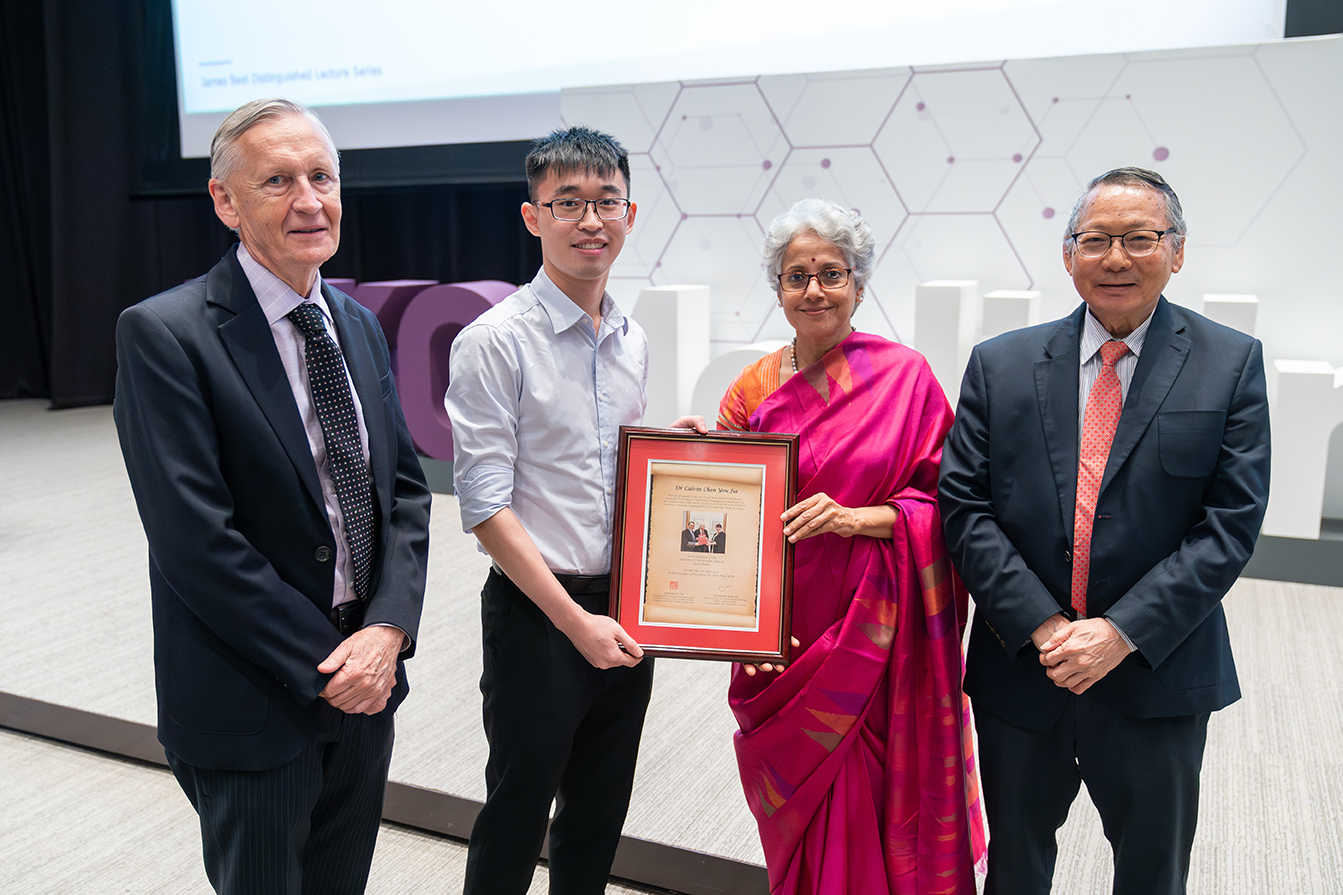News: 4th James Best Distinguished Lecture: “Climate Change, Public Health, and Equity” by Professor Soumya Swaminathan
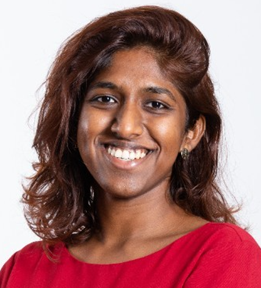 | By Retna Devi |
The impact of climate change on both public health and society is undeniable and extensive. This was highlighted at the 4th James Best Distinguished Lecture, delivered by esteemed scientist and global public health advocate Professor Soumya Swaminathan. More than 300 attendees gathered at the Ong Tiong Tat and Irene Tan Liang Kheng Auditorium on 20 March 2024 to intently listen to her lecture titled, 'Climate Change, Public Health, and Equity.
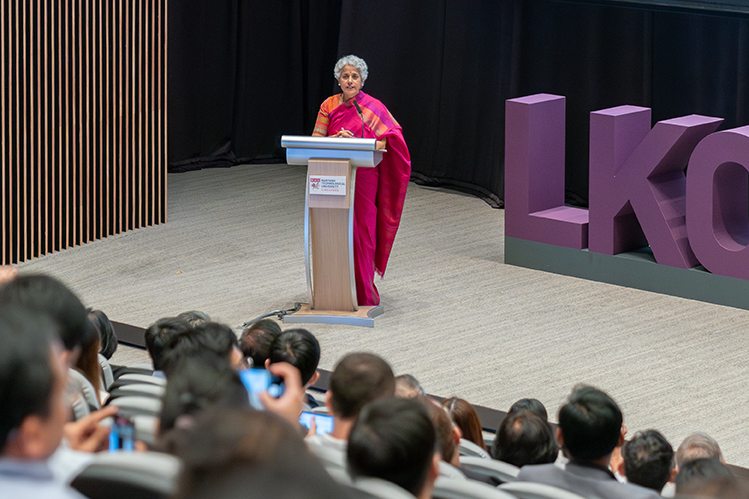
Initiated in 2022 as part of the LKCMedicine's 10th Anniversary Distinguished Visitor Programme, the James Best Distinguished Lecture series spans five years, made possible by a generous $500,000 donation from an anonymous local benefactor.
The event commenced with an opening address by LKCMedicine Dean Distinguished University Professor Joseph Sung, who also serves as NTU Senior Vice-President (Health & Life Sciences). He emphasised the timeliness and significance of Prof Swaminathan's discourse on the intricate interplay between climate change and human health, urging urgent action at both local and global levels, while underscoring the relevance of recent research in Singapore.
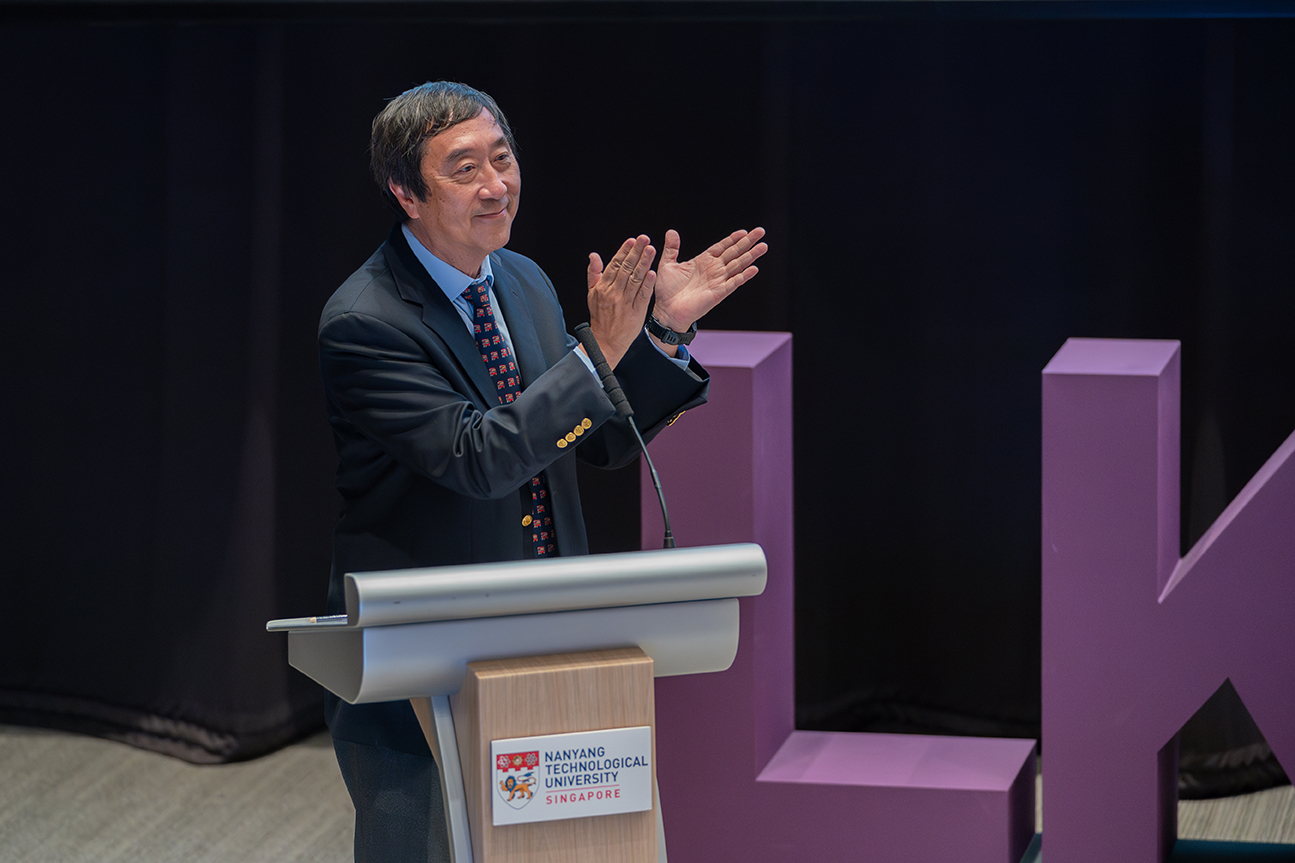
“A recent systematic review study in Singapore has also found that several effects of climate change such as absolute humidity, rainfall, nitrogen dioxide and ozone were positively associated with adverse health. At a national level, these findings are concerning for Singapore and what it means for our local health systems,” he said.
Former LKCMedicine Dean, Professor James Best, for whom the lecture series is named after, provided a citation for Prof Swaminathan, praising her significant contributions to shaping international health policies and strategies, particularly in combating infectious diseases like tuberculosis, HIV, and COVID-19.

“[Prof Swaminathan] has played a pivotal role in shaping international health policies and strategies, particularly in the fight against infectious diseases such as tuberculosis, HIV, and COVID-19. During the pandemic she played a key role in coordinating scientific efforts at the WHO… with a focus on equitable vaccine distribution to lower middle-income countries,” shared Prof Best, who is now a visiting professor at LKCMedicine.

In her lecture, Prof Swaminathan depicted the reality of the challenges posed by climate change, stressing its existential threat to humanity. “What is going to really impact our health today is not what is happening in hospitals and health centres, but really what is happening upstream and the risk factors for our health that we pay too little attention to. Climate change is one of these [factors] and it is an issue that threatens the very future of our humanity, even though we do not think of it that way,” she said.

She provided examples of extreme weather events in 2023 and highlighted the acknowledgment of climate change risks by global entities like the World Economic Forum and COP 28.
Despite the increasing global discourse on climate change, Prof Swaminathan emphasised the insufficient research on its health impact, advocating for immediate attention to areas such as heat-related deaths, cardiovascular effects of prolonged heat exposure, and the reconsideration of air pollution's significance. She also addressed the exacerbation of social inequalities by climate change, paralleling the inequalities magnified during the COVID-19 pandemic.

“What we saw during COVID-19 is that it did not create these inequalities, it only made them obvious. In every society, we could see who was the most vulnerable, the marginalised, the ones with the least amount of resources and resilience. It happened in every country. This is what climate change is also doing,” she explained.
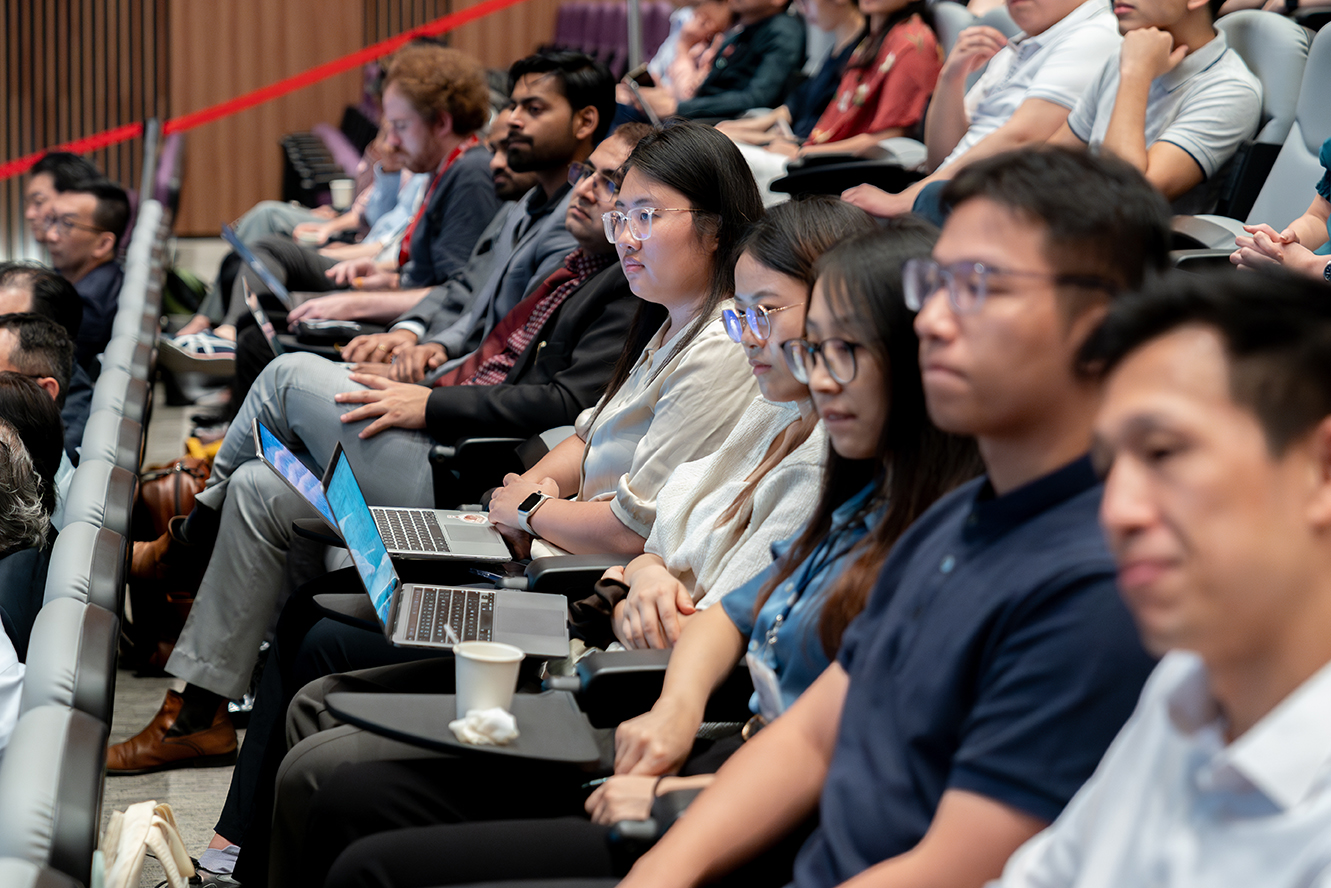
Amidst the grim realities outlined, Prof Swaminathan offered examples of mitigation and adaptation strategies, such as heat action plans in India and the conservation efforts of indigenous communities. Drawing from her knowledge and research, she cited heat action plans implemented in Rajasthan and Ahmedabad, the valuable work carried out by indigenous communities in Odisha to protect cultural biodiversity as well as alternative food sources such as millet. She also urged healthcare professionals to consider their carbon footprint and actively work towards reducing emissions.

The lecture concluded with an engaging question-and-answer session, exploring topics like the role of women in climate leadership, individual and collective contributions, research translation into policy, and global governance effectiveness.
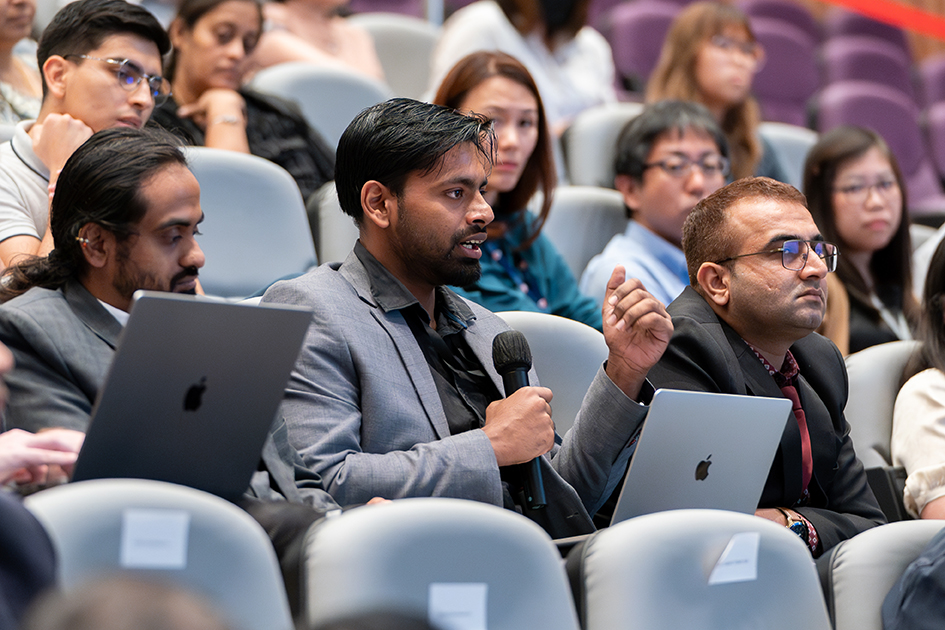
Subsequently, attendees continued the dialogue with Prof Swaminathan at a Fireside Chat, fostering an enriching exchange of experiences and ideas. Prof Swaminathan shared personal anecdotes about her childhood and the influence of her late father who was an established economist. She also humorously recounted how Dr Tedros Adhanom Ghebreyesus, the Director-General of WHO, offered her the position of Chief Scientist over an unexpected phone call.
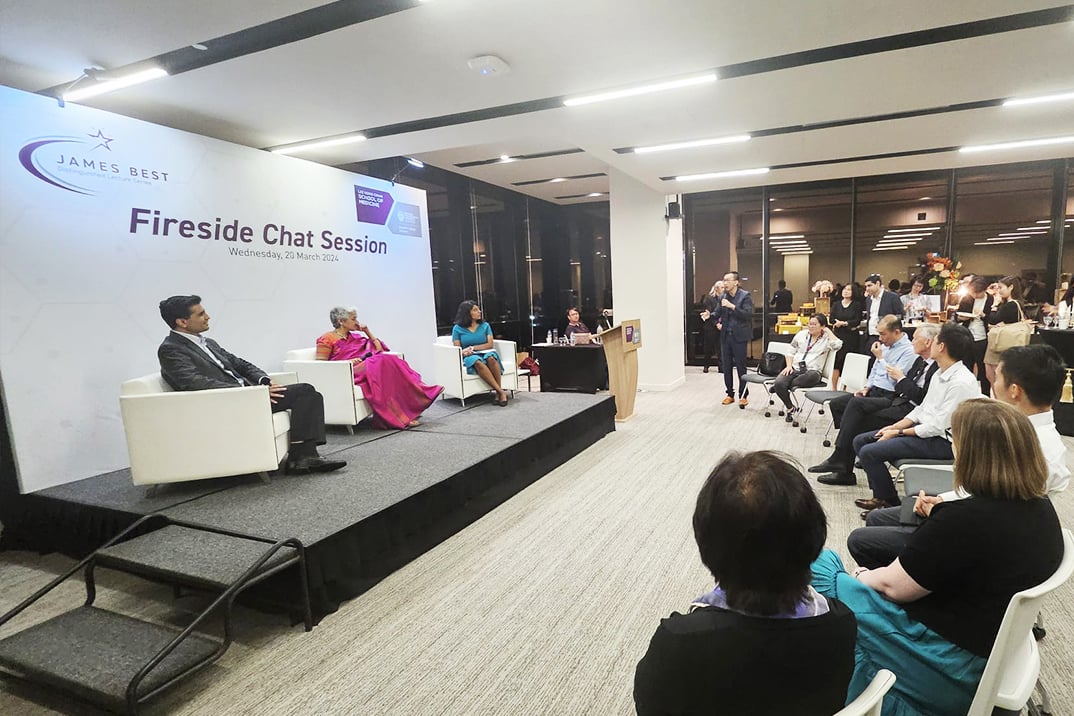
This candid exchange of experiences and ideas signalled a fruitful evening and the end of another successful and well-attended James Best Distinguished Lecture. Through this platform, LKCMedicine aims to bringing together thought leaders and industry experts to advance the discourse in medicine, medical education, and research.
